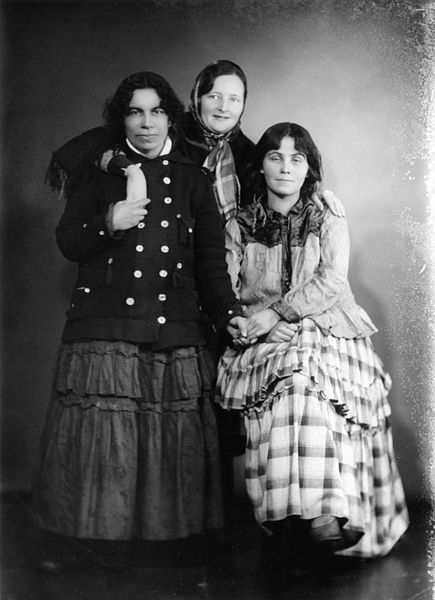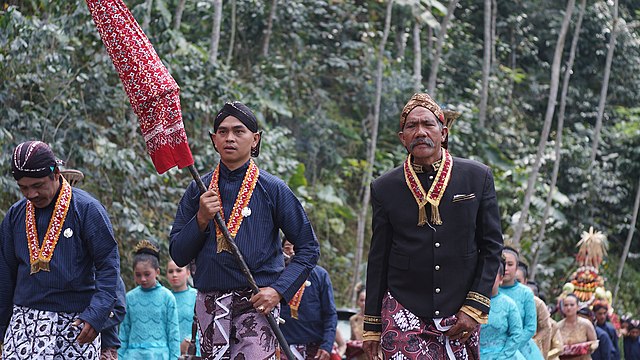The Romani, also spelled Romany or Rromani and colloquially known as the Roma, are an ethnic group of Indo-Aryan origin who traditionally lived a nomadic, itinerant lifestyle. Linguistic and genetic evidence suggests that the Romani originated in the Indian subcontinent, in particular the region of present-day Rajasthan. Their subsequent westward migration, possibly in waves, is now believed by historians to have occurred around 1000 CE. Their original name is from the Sanskrit word डोम, ḍoma and means a member of the Dom caste of travelling musicians and dancers. The Roma population moved west into the Ghaznavid Empire and later into the Byzantine Empire. The Roma are thought to have arrived in Europe around the 13th to 14th century. Although they are widely dispersed, their most concentrated populations are located in Bulgaria, Hungary, Romania, Spain, and Turkey.
Three Finnish Romani women in Helsinki, Finland, in the 1930s
Debret, Jean-Baptiste (c. 1820), Interior of a gipsy's house in Brazil
Gypsies camping. Welsh Romanies near Swansea, 1953
Two Gypsies by Francisco Iturrino
An ethnicity or ethnic group is a group of people who identify with each other on the basis of perceived shared attributes that distinguish them from other groups. Those attributes can include a common nation of origin, or common sets of ancestry, traditions, language, history, society, religion, or social treatment. The term ethnicity is often used interchangeably with the term nation, particularly in cases of ethnic nationalism.
A group of ethnic Bengalis in Dhaka, Bangladesh. The Bengalis form the third-largest ethnic group in the world after the Han Chinese and Arabs.
The Javanese people of Indonesia are the largest Austronesian ethnic group.
The racial diversity of Asia's ethnic groups (original caption: Asiatiska folk), Nordisk familjebok (1904)
Assyrians are one of the indigenous peoples of Northern Iraq.








